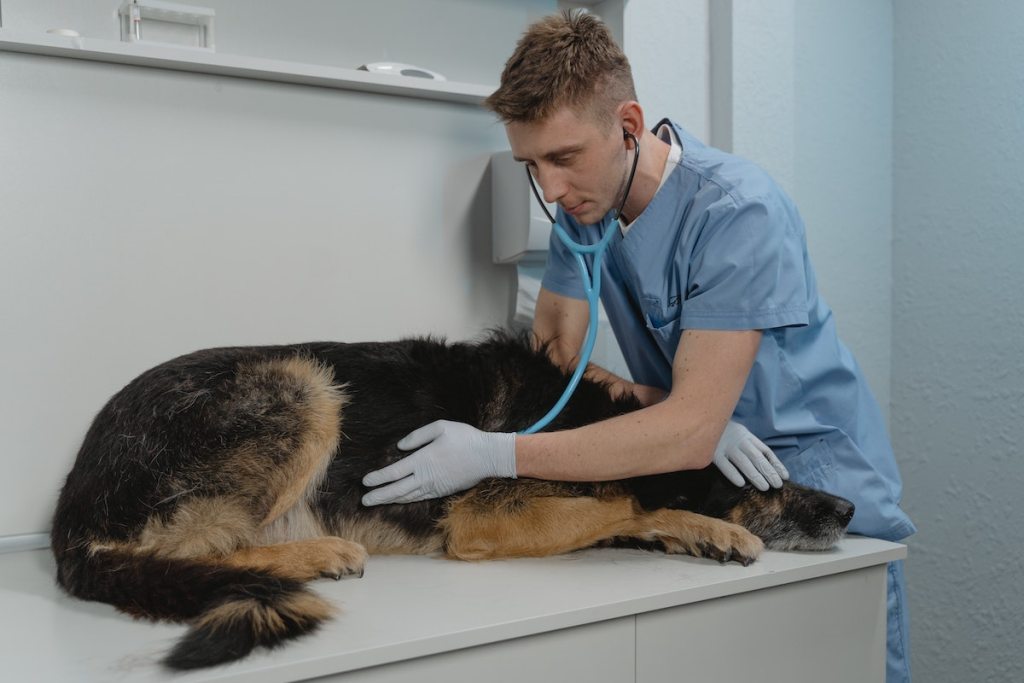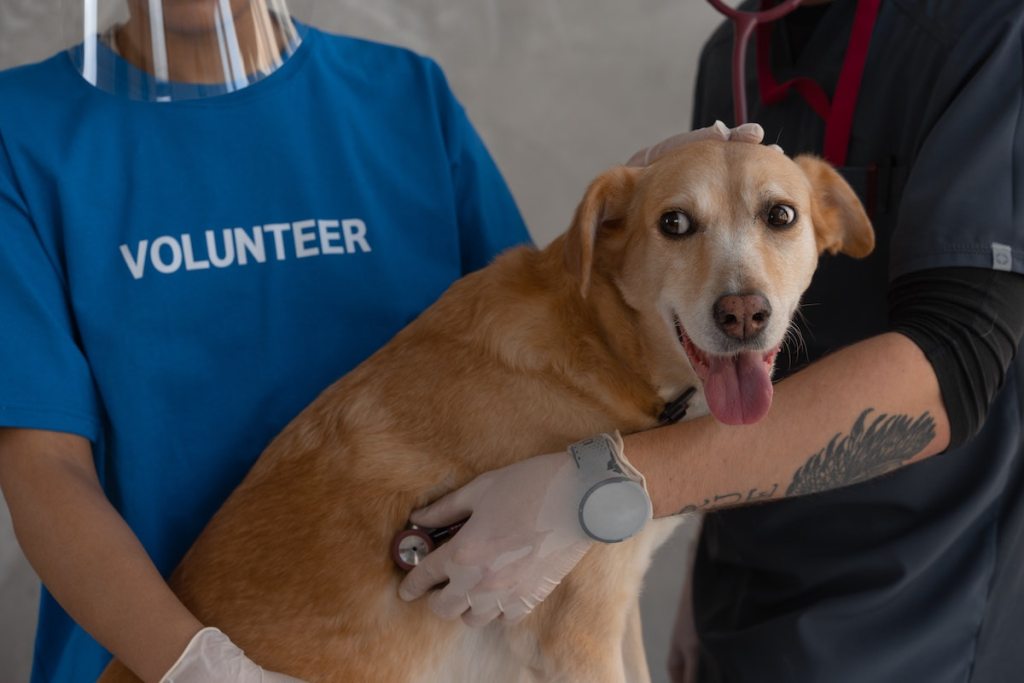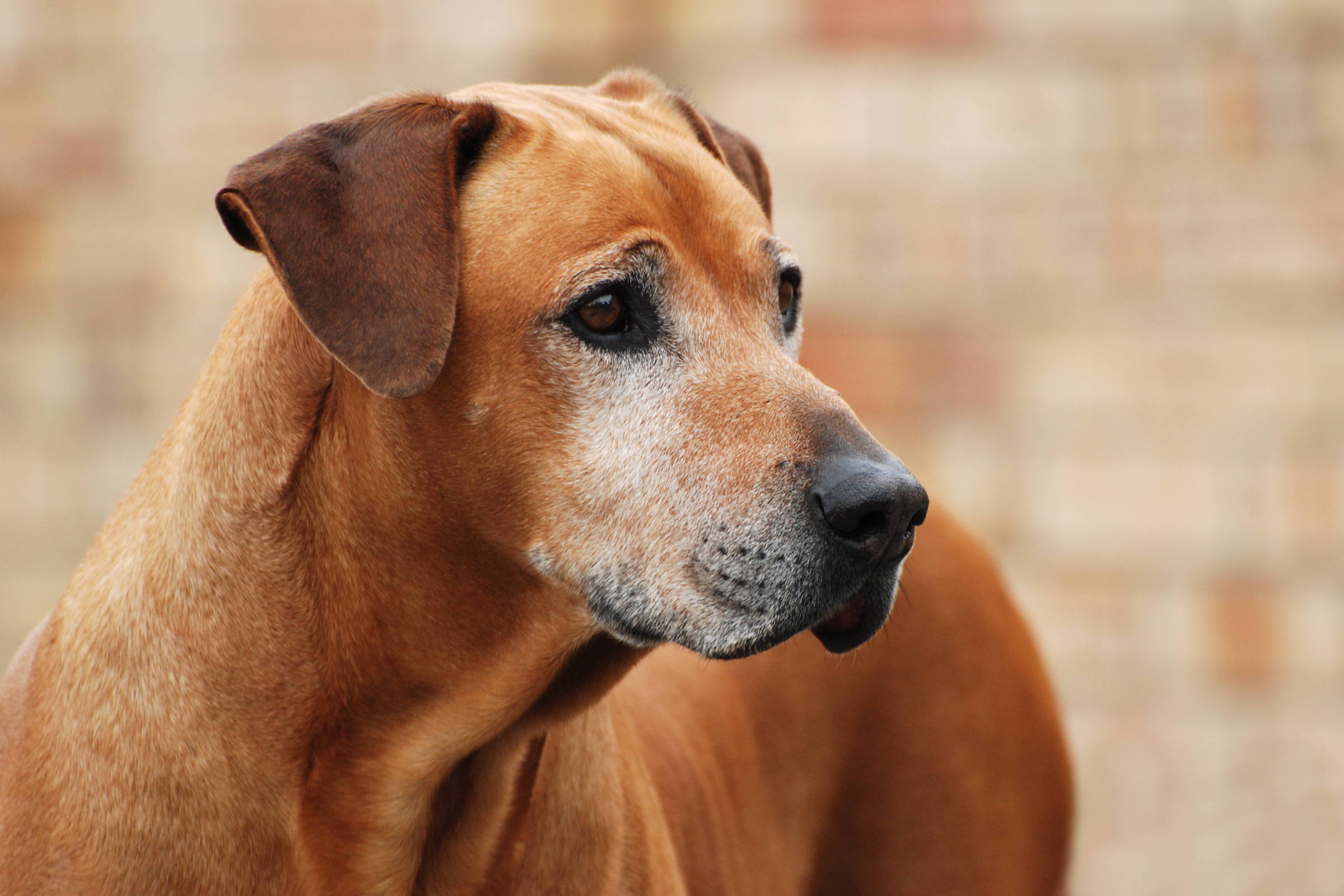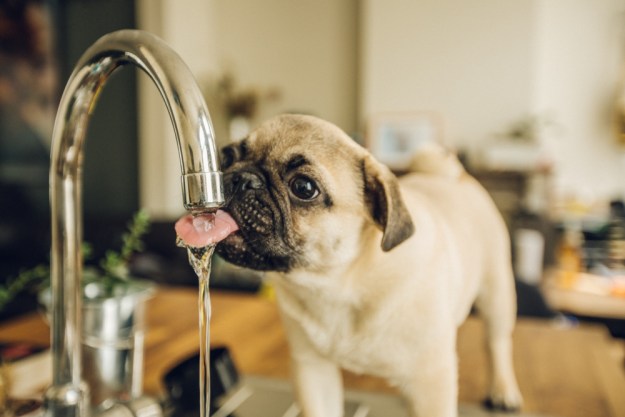
There are so many wonderful aspects of parenting a senior dog. They might move a bit slower, but the more leisurely pace of your morning walks gives you a chance to stop and smell the roses. Perhaps they are a bit more mellow and spend extra time cuddled up next to you on the couch as you watch Netflix — it’s such a wonderful bonding experience.
However, just like people, pets often require more medical attention as they hit their golden years. When your puppy sneezed, you may have giggled and figured it was a one-off occurrence (and it likely was). As your pet gets older, though, coughing, gagging, and dry retching may cause your ears to perk up and your heart to drop. Is it a reason to worry? Why is your old dog coughing and gagging?
Here’s what you need to know and when to ring your pet’s veterinarian.

Why is my dog coughing and dry retching?
In the most basic sense, dogs cough because it’s a natural response to something blocking their airways and impeding breathing. In many cases, a cough clears the airways. However, it doesn’t always work like that, and sometimes coughs signify something else is up.
Here are possible reasons why you may notice your old dog coughing or gagging.
Irritants
Your dog may have eaten too fast or breathed in some dust, smoke, or pollen. In these typically benign cases, coughing should clear the airway.
Canine allergies
Dogs can develop allergies at any age to anything in the environment, from tree pollen to cut grass. They may also have a food allergy. If the allergy is due to an environmental factor, it may flare up more in certain years. Besides coughing, signs of allergies can include sneezing, incessant itching, skin irritation, and hair loss.
Illnesses or chronic conditions
Sometimes, a cough is a sign your dog is sick. A chronic cough is a common symptom of:
- Respiratory illness: Dogs are susceptible to the canine versions of influenza, adenovirus, coronavirus, and distemper. Dogs with these conditions may have a chronic cough, trouble breathing, and a fever.
- Kennel cough: This contagious illness transmits in public settings, mainly ones with other pups like shelters, daycare, and boarding facilities.
- Heart disease: If your senior pet’s heart isn’t pumping blood effectively, it can increase fluid to the lungs and cause coughs.
- Asthma: This chronic condition occurs when the airways become inflamed because of an irritant, like one from the environment, and causes a pup to cough and wheeze.
- Tumors or cancer. If a dog has a benign tumor or cancer, it may impede their breathing and cause coughing.
Collapsed trachea (windpipe)
The trachea is a key part of the respiratory that allows for the free flow of air. Dogs, particularly poodles and dachshunds, are more susceptible to collapsed tracheas as they get older.
Obesity
Overweight and obese dogs may not have the same stamina as their pup friends at a healthy weight. It may take less for them to over-exert themselves, and they may cough as they try to catch their breath.

Why does my dog keep coughing and gagging but not throwing up?
Gagging isn’t simply a sign your dog has a stomachache. A dog may cough in addition to gag for several reasons other than GI upset. Your dog may have an infection, such as kennel cough, a cold, or flu (yes, even canines are susceptible to the last two).
A dog may also be struggling with allergies. A collapsed windpipe, clinically known as a trachea, may be affecting the flow of air, triggering coughing and gagging. In these cases, a pup doesn’t need to throw up, but they may need to catch their breath and be evaluated by a vet. If you’re concerned about your pet, call the vet. It’s better to be safe and get ahead of any issues — prompt care can help your pet achieve better health outcomes.

When should I call my vet?
Your vet is the best person to answer questions like, “Why is my old dog coughing and gagging?” That said, if your dog gags once after eating or coughs after pulling on a leash, you probably don’t need to worry. However, if it becomes consistent throughout the day or week, you’ll want to get the vet on the phone. Some conditions, like kennel cough, are easily treated with antibiotics. Others, such as cancer, can sometimes be treated if caught early.
Call your vet immediately if your dog has a known condition such as heart disease, or you suspect they are having an asthma attack. Asthma attacks are considered emergencies for dogs.

How can I keep my pet comfortable and cough-free?
You can’t prevent every cough, but a few simple steps can help you mitigate any unnecessary coughing, including:
- Going to the vet for yearly check-ups to ensure your pet hasn’t developed any conditions
- Ensuring your pet is up-to-date on vaccines, such as for kennel cough
- Using a humidifier around the house
- Keeping your dog calm
- Dusting often
You want your dog to be healthy, happy, and as comfortable as possible as they age. A chronic cough may be a flag that something is up, and it could be a quick fix. For example, your pet may have developed an allergy or caught a bug that is easily managed with a round of antibiotics. Unfortunately, sometimes it’s something more serious, such as cancer. That said, cancer can be treatable with early intervention. Your best bet is to call your vet if your dog’s cough is chronic. The vet can let you know about the next steps. You’ll also want to see your vet regularly for wellness check-ups and ensure your pet gets all their recommended vaccines, such as the one for kennel cough.
Editors' Recommendations
- 50 amazing boy dog names to consider for your new puppy
- Can dogs see in the dark? Your guide to your dog’s vision
- The best medium-sized dog breeds for your family
- Can dogs eat pineapple? What you need to know
- Why do dogs hump everything? You might be surprised




